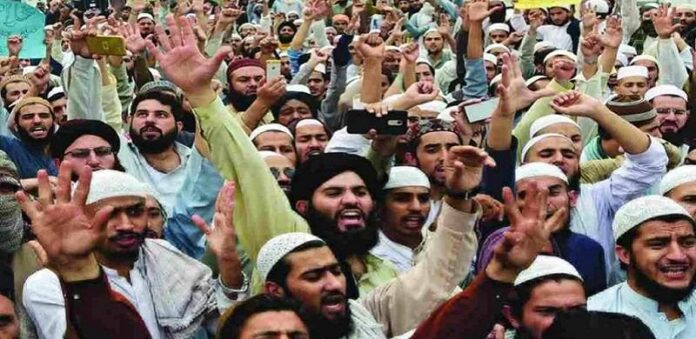Authors: Adeel Malik, Rinchan Ali Mirza
Affiliation: University of Oxford, University of Kent
Organization/Publisher: Broadstreet
Date/Place: November 5, 2021/ Pakistan
Type of Literature: Analysis
Word Count: 2350
Link: https://broadstreet.blog/2021/11/05/religious-elites-and-the-political-economy-of-development/
Keywords: Political Economy, Pakistan, Punjab, Religious Elite, Economic Development, Sufi Shrines
Brief:
This piece brings to fore the status and influence that a particular elite attained and yielded because of religion, in Pakistan’s Punjab province, which houses some of South Asia’s oldest Islamic mystical orders. Power families associated with shrines are an important factor in politics and regimes yielding authority over a people. Supported by empirical data, the authors refer to how the “British colonial administration treated prominent shrine families as ‘agrarian castes’, which made them fit to receive landed gentry grants.” The colonial powers ensured the smooth running of power by leaping on these powerful families to “maintain social order” in the society. In the context of Punjab, the authors point to Kirmani Syeds of Shergarh, caretakers of the shrine of Daud Bandagi. This analysis notes that change in regimes does not much affect this clout – be it a civil or a military dictatorship, both of them need such constructions of power sphere in Pakistan. “Hereditary succession of religious authority facilitates the political persistence of shrine elites over time as it spreads religious power across several generations. Due to the dense and inter-locking ties of shrine brotherhood, shrine elites enjoy strong brokerage capacity both in and outside the parliament,” the authors note. Syed Yusuf Raza Gilani, Shah Mahmood Qureshi, and Fazul Rehman are quite strong names when it comes to politicians yielding influence because of their religious status in the society. The study also reveals how these families, wherever located, have an adverse impact on the spread of education in those regions. “We show that, without the shrine influence, average literacy rate would have been higher by 13 percent.” This research supports that there is a “relationship between Islam and the underlying distribution of economic and political power” as “religious elites play an important role in structuring power relationships in Muslim Societies.”
By: Riyaz ul Khaliq, CIGA Non-resident Research Associate




